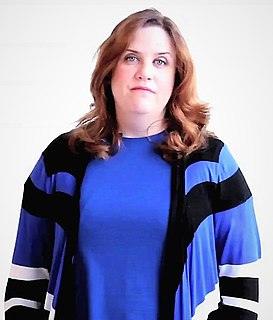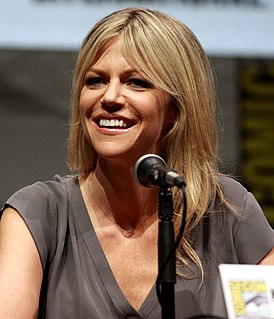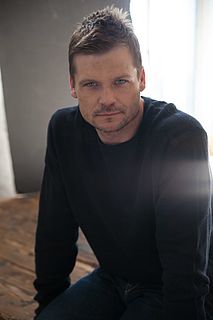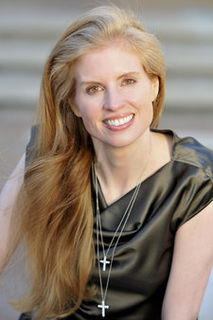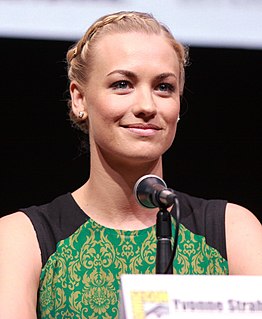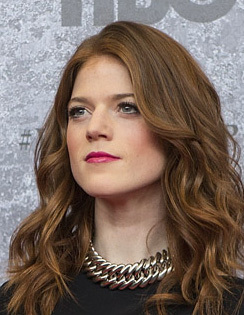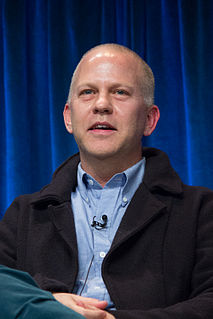A Quote by Donna Lynne Champlin
Logistically, working on a television show and hitting your mark and leaning to your right and knowing where the camera is - I literally felt like I was on another planet.
Related Quotes
Film, television, and working with a camera is such an intimate art form that if a camera is right on you, and I've got your face filling the screen, you have to be real. If you do anything that is fake, you're not going to get away with it, because the camera is right there, and the story is being told in a very real way.
First and foremost, my hats off to our directors and camera department. That is something I will miss after Longmire. I can't imagine working on another show that looks like this. We'll get the whole crew out on location and have a hundred people standing around, waiting for about 40 minutes, so that sun is just a little bit further in the sky and the light is hitting the cloud, in the perfect way.
Proactive giving is what you do when you've found your passion. It expresses your values, interests and concerns. It engages not just your dollars, but also your mind, time, skills and networks - the philanthropic equivalent of leaning in, rather than leaning back. Most importantly, proactive giving is something you want to do.
Television is such an evolving medium. When you're doing a TV show, it's not like you just shoot for six weeks and you're in an editing room with all of your footage. It's like a guitar or a car, you have to fine tune things. You stop doing what's not working, you work on what is working and you add things that do work.
Working on camera is a different ballgame in the sense that it's far more intimate work, but the basics and the foundations of being able to create something that isn't necessarily your own instincts - is a character that you have inside your head - whether you're talking about television or film or theater, that still has to be the grounding work.
People were murdered for the camera; and some photographers and a television camera crew departed without taking a picture in the hope that in the absence of cameramen acts might not be committed. Others felt that the mob was beyond appeal to mercy. They stayed and won Pulitzer Prizes. Were they right?
